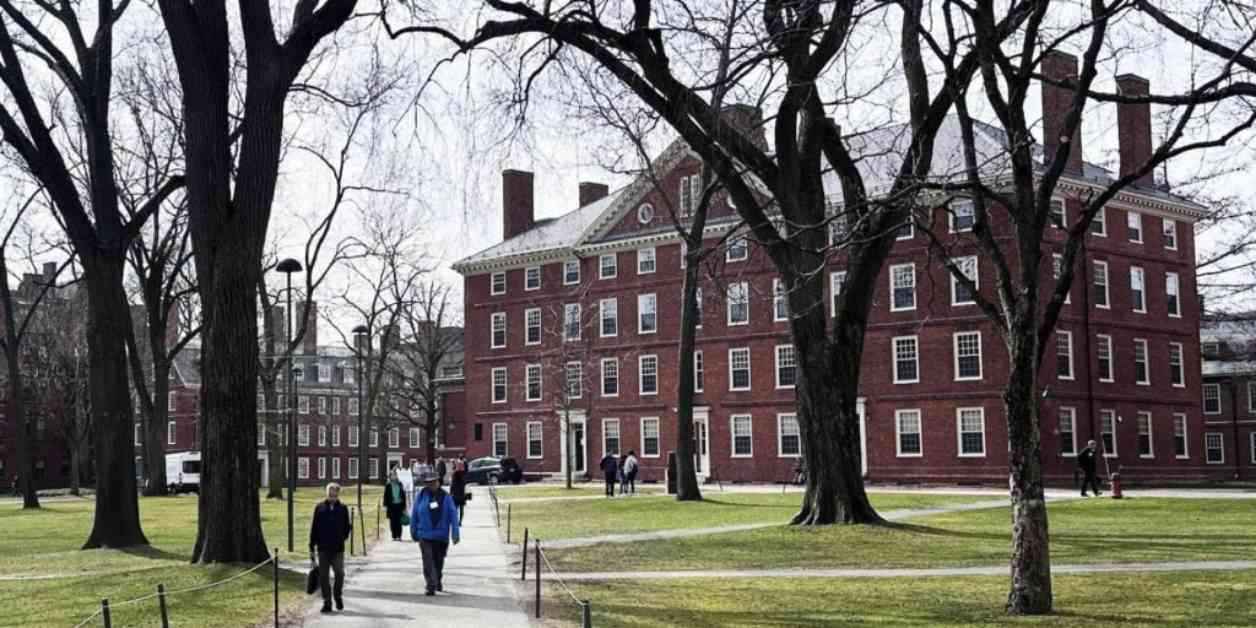Harvard Stands Firm Against Trump’s Funding Threats
In a bold move that has sparked national debate, Harvard University has made a resolute stand against President Trump’s threats of funding cuts. The prestigious institution’s unwavering stance has brought to light the contentious issue of federal funding for universities and the potential implications for research and democracy.
The Battle for Federal Funding: Professors’ Concerns
As tensions escalate between the Trump administration and academic institutions, professors across the country are voicing their concerns about the potential impact of federal funding cuts. Many fear that such cuts could not only jeopardize critical research projects but also undermine the very foundations of democracy.
Expert commentator Dr. Sarah Thompson, a renowned political scientist at Yale University, emphasizes the vital role that universities play in advancing knowledge and fostering critical thinking. “Universities are the backbone of our society,” she explains. “They are essential for nurturing the next generation of leaders and innovators. Any threat to their funding poses a significant risk to our future.”
In light of these concerns, Harvard’s refusal to comply with Trump’s demands has garnered widespread attention and support from the academic community. The university’s bold stance is seen as a symbol of resistance against what many perceive as an attack on the values of higher education.
The Human Cost of Education Cuts: Stories from the Frontlines
Amidst the political turmoil, individual stories of hardship and struggle are emerging from the education sector. A recent lawsuit filed by a Connecticut woman against the school system highlights the profound impact of inadequate education on individuals. The woman claims that she is unable to read or write despite graduating from the school system, underscoring the potential consequences of underfunded and under-resourced schools.
Similarly, reports of skyrocketing student loan payments have caused widespread concern among borrowers who rely on income-based repayment plans. The sudden halt of millions of such plans has left many students facing financial uncertainty and hardship, raising questions about the long-term viability of the education system.
As educators and students grapple with the uncertainty of looming budget cuts, the human toll of these decisions is becoming increasingly apparent. From teachers protesting in the streets to students struggling to repay their loans, the impact of funding cuts extends far beyond the walls of academia.
The Future of Education: Navigating Uncertain Times
As the Department of Education faces unprecedented challenges and upheaval, the future of education in America hangs in the balance. President Trump’s executive order to dismantle the department has sent shockwaves through the education community, prompting fears of widespread disruption and disarray.
In the midst of this uncertainty, educators and policymakers are left to grapple with the complex task of navigating a rapidly changing landscape. The proposed bill that could force Indianapolis public schools to go charter-only underscores the need for careful deliberation and thoughtful decision-making in these tumultuous times.
As universities like Harvard take a stand against threats to their autonomy and funding, the broader implications for education and democracy remain at the forefront of national discourse. The battle for the soul of education in America is far from over, and the decisions made in the coming months will shape the future of generations to come.
Harvard’s refusal to comply with President Trump’s demands marks a pivotal moment in the ongoing debate over federal funding for universities. The university’s bold stance has ignited a national conversation about the importance of higher education and the potential consequences of political interference. As the battle for education funding rages on, the stakes could not be higher for the future of learning and democracy in America.














